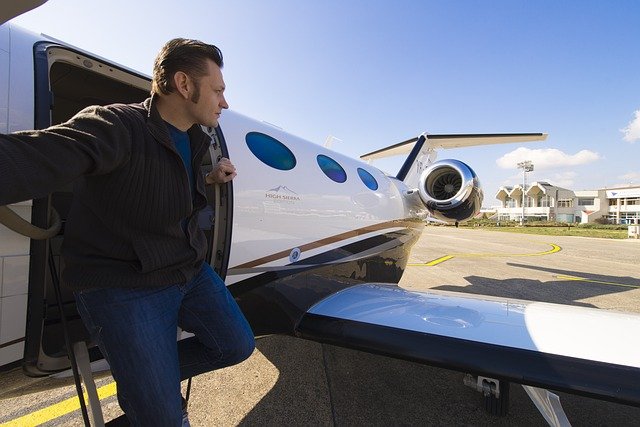Exploring Career Opportunities as a Private Jet Attendant in Luxury Aviation
A career as a private jet attendant offers more than just travel—it blends personalized service, discretion, and high standards in exclusive aviation settings. As more travelers seek tailored in-flight experiences, interest in this role continues to evolve. This guide explores how individuals approach training, qualifications, and day-to-day expectations within the world of luxury aviation.

What is the typical private jet attendant salary?
Private jet attendant salaries can vary widely depending on factors such as experience, employer, and flight frequency. Generally, these professionals earn more than their commercial airline counterparts due to the exclusive nature of their work. Entry-level private jet attendants may start with annual salaries ranging from $50,000 to $70,000, while experienced professionals can earn upwards of $100,000 to $150,000 per year. Some high-end positions with ultra-luxury private jet companies or working directly for wealthy individuals may offer even higher compensation packages, potentially reaching $200,000 or more annually.
It’s important to note that private jet attendants often receive additional perks such as travel benefits, accommodation allowances, and generous tips from satisfied clients. However, the job can be demanding, with irregular schedules and the need to be on-call for extended periods.
How to become a flight attendant for celebrities?
Becoming a flight attendant for celebrities requires a combination of experience, skills, and networking. Here are some steps to help you pursue this career path:
-
Gain experience: Start by working as a flight attendant for commercial airlines or smaller private jet companies to build your aviation credentials.
-
Develop luxury service skills: Take courses in high-end hospitality, etiquette, and customer service to understand the expectations of VIP clients.
-
Learn additional languages: Being multilingual is a significant advantage in the luxury aviation industry.
-
Network extensively: Attend industry events, join professional associations, and connect with people in the private aviation sector.
-
Obtain specialized certifications: Consider acquiring certifications in areas such as wine service, security, or first aid to stand out from other candidates.
-
Apply to exclusive private jet companies: Research and apply to companies known for catering to celebrity clientele.
-
Be discreet and professional: Celebrities value their privacy, so demonstrating your ability to maintain confidentiality is crucial.
-
Stay flexible and adaptable: Celebrity schedules can be unpredictable, so being available on short notice is often necessary.
What does luxury flight attendant training involve?
Luxury flight attendant training goes beyond the standard safety and service protocols taught in commercial airline programs. This specialized training focuses on providing an exceptional, personalized experience for high-net-worth individuals. Key components of luxury flight attendant training include:
-
Advanced safety and emergency procedures specific to private aircraft
-
High-end customer service and etiquette training
-
Gourmet food preparation and presentation
-
Wine and cocktail service expertise
-
Personal grooming and image consulting
-
Cultural sensitivity and international protocol
-
Conflict resolution and problem-solving in high-pressure situations
-
VIP security awareness and discretion practices
-
Luxury brand knowledge and appreciation
-
Private jet-specific equipment and amenities familiarization
Many luxury aviation companies offer their own proprietary training programs, which can last anywhere from a few weeks to several months. Some aspiring private jet attendants also choose to attend specialized schools that offer comprehensive luxury aviation courses to enhance their skills and marketability.
What is a day in the life of a private jet crew like?
A typical day for a private jet crew is far from routine, as each flight and client can present unique challenges and requirements. However, here’s a general overview of what a day might entail:
-
Pre-flight preparation: The crew arrives several hours before the scheduled departure to prepare the aircraft, review passenger preferences, and ensure all necessary supplies are on board.
-
Passenger briefing: Upon arrival, the crew greets the passengers and provides a personalized safety briefing.
-
In-flight service: During the flight, attendants cater to passengers’ needs, serving gourmet meals, beverages, and providing entertainment options.
-
Problem-solving: The crew must be ready to handle any requests or issues that arise, from last-minute itinerary changes to special accommodation needs.
-
Post-flight duties: After landing, the crew assists with baggage, coordinates ground transportation, and prepares the aircraft for the next flight or overnight stay.
-
Downtime and rest: Between flights, crew members may have layovers in luxurious destinations, allowing for some relaxation and exploration.
-
Continuous learning: Private jet crews often use their spare time to stay updated on industry trends, luxury brands, and client preferences to enhance their service skills.
The work of a private jet crew is demanding but rewarding, offering opportunities to travel to exclusive destinations and interact with interesting individuals while providing top-tier service in a high-end environment.
In conclusion, a career as a private jet attendant in luxury aviation offers unique opportunities for those seeking a challenging and prestigious role in the hospitality industry. With competitive salaries, exclusive work environments, and the chance to cater to high-profile clients, this career path can be both financially and personally rewarding for those willing to invest in the necessary training and experience.




